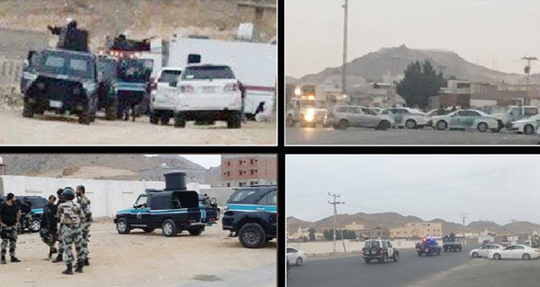Jeddah, Feb 12: Seven terror suspects were arrested in a series of raids in Jeddah early on Saturday morning, authorities said.
Security forces stormed three separate locations simultaneously in an operation that lasted around two hours.

The raids took place in the Al-Harazat, Al-Mahameed and Bani Malik districts.
Four people were arrested in Al-Harazat and Al-Mahameed after security forces cordoned off the locations and fired warning shots. The suspects surrendered immediately without any resistance. Another three persons were arrested without resistance in Bani Malik in downtown Jeddah.
The Ministry of Interior is expected to announce further details soon.
The raids follow another anti-terror operation in Jeddah in mid-January, in which two dangerous terrorists were killed and another two arrested in dramatic security operations in the Western port city.






Comments
Hats Off Saudi Government ......with the coordination of GCC .
Add new comment